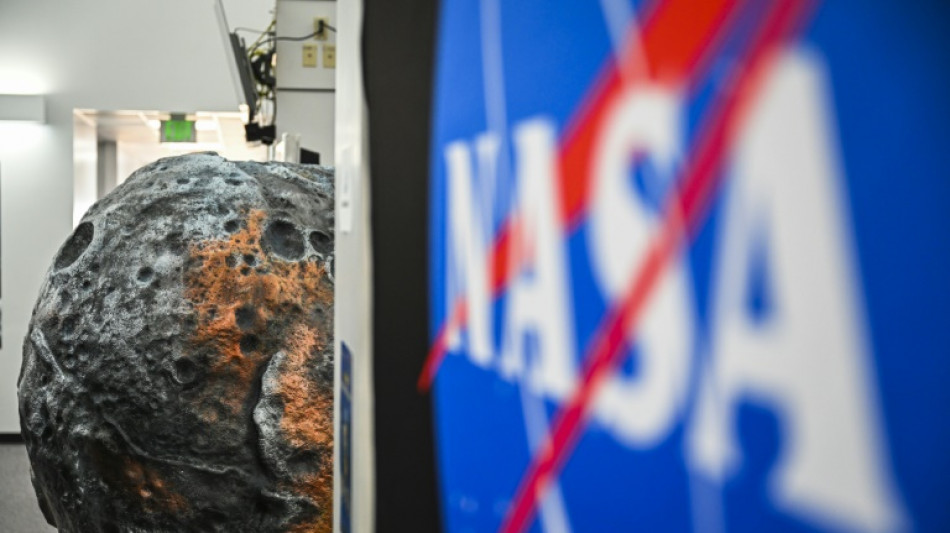
-
 Snedeker, Ogilvy to skipper Presidents Cup teams: PGA Tour
Snedeker, Ogilvy to skipper Presidents Cup teams: PGA Tour
-
Win or bust in Europa League for Amorim's Man Utd

-
 Trump celebrates 100 days in office with campaign-style rally
Trump celebrates 100 days in office with campaign-style rally
-
Top Cuban dissidents detained after court revokes parole
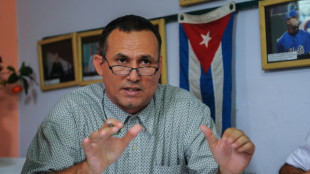
-
 Arteta urges Arsenal to deliver 'special' fightback against PSG
Arteta urges Arsenal to deliver 'special' fightback against PSG
-
Trump fires Kamala Harris's husband from Holocaust board

-
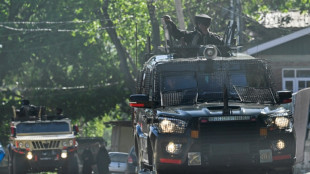 Pakistan says India planning strike as tensions soar over Kashmir attack
Pakistan says India planning strike as tensions soar over Kashmir attack
-
Weinstein sex attack accuser tells court he 'humiliated' her

-
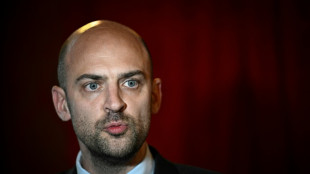 France accuses Russian military intelligence over cyberattacks
France accuses Russian military intelligence over cyberattacks
-
Global stocks mostly rise as Trump grants auto tariff relief
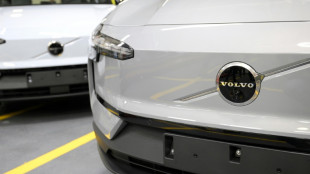
-
 Grand Vietnam parade 50 years after the fall of Saigon
Grand Vietnam parade 50 years after the fall of Saigon
-
Trump fires ex first gentleman Emhoff from Holocaust board

-
 PSG 'not getting carried away' despite holding edge against Arsenal
PSG 'not getting carried away' despite holding edge against Arsenal
-
Cuban dissidents detained after court revokes parole
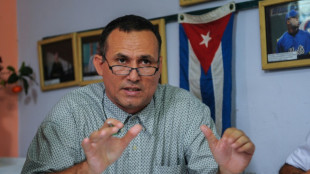
-
 Sweden stunned by new deadly gun attack
Sweden stunned by new deadly gun attack
-
BRICS blast 'resurgence of protectionism' in Trump era
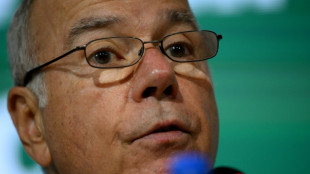
-
 Trump tempers auto tariffs, winning cautious praise from industry
Trump tempers auto tariffs, winning cautious praise from industry
-
'Cruel measure': Dominican crackdown on Haitian hospitals

-
 'It's only half-time': Defiant Raya says Arsenal can overturn PSG deficit
'It's only half-time': Defiant Raya says Arsenal can overturn PSG deficit
-
Dembele sinks Arsenal as PSG seize edge in Champions League semi-final

-
 Les Kiss to take over Wallabies coach role from mid-2026
Les Kiss to take over Wallabies coach role from mid-2026
-
Real Madrid's Rudiger, Mendy and Alaba out injured until end of season

-
 US threatens to quit Russia-Ukraine effort unless 'concrete proposals'
US threatens to quit Russia-Ukraine effort unless 'concrete proposals'
-
Meta releases standalone AI app, competing with ChatGPT

-
 Zverev crashes as Swiatek scrapes into Madrid Open quarter-finals
Zverev crashes as Swiatek scrapes into Madrid Open quarter-finals
-
BRICS members blast rise of 'trade protectionism'
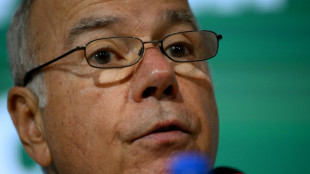
-
 Trump praises Bezos as Amazon denies plan to display tariff cost
Trump praises Bezos as Amazon denies plan to display tariff cost
-
France to tax small parcels from China amid tariff fallout fears

-
 Hong Kong releases former opposition lawmakers jailed for subversion
Hong Kong releases former opposition lawmakers jailed for subversion
-
Trump celebrates tumultuous 100 days in office

-
 Sweden gun attack leaves three dead
Sweden gun attack leaves three dead
-
Real Madrid's Rudiger banned for six matches after Copa final red

-
 Firmino, Toney fire Al Ahli into AFC Champions League final
Firmino, Toney fire Al Ahli into AFC Champions League final
-
Maximum respect for Barca but no fear: Inter's Inzaghi
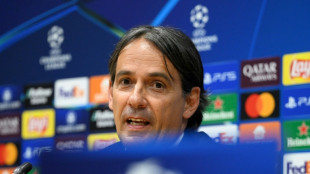
-
 Trump signals relief on auto tariffs as industry awaits details
Trump signals relief on auto tariffs as industry awaits details
-
Cuban court revokes parole of two prominent dissidents
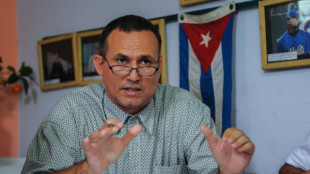
-
 Narine leads from the front as Kolkata trump Delhi in IPL
Narine leads from the front as Kolkata trump Delhi in IPL
-
Amazon says never planned to show tariff costs, after White House backlash

-
 Djokovic to miss Italian Open
Djokovic to miss Italian Open
-
Trossard starts for Arsenal in Champions League semi against PSG

-
 Sweden shooting kills three: police
Sweden shooting kills three: police
-
Real Madrid's Rudiger, Mendy out injured until end of season

-
 Dubois' trainer accuses Usyk of 'conning boxing world'
Dubois' trainer accuses Usyk of 'conning boxing world'
-
Femke Bol targets fast return after draining 2024

-
 Asterix, Obelix and Netflix: US streamer embraces Gallic heroes
Asterix, Obelix and Netflix: US streamer embraces Gallic heroes
-
Watson wins Tour de Romandie prologue, Evenepoel eighth

-
 Amazon says never decided to show tariff costs, after White House backlash
Amazon says never decided to show tariff costs, after White House backlash
-
India gives army 'operational freedom' to respond to Kashmir attack

-
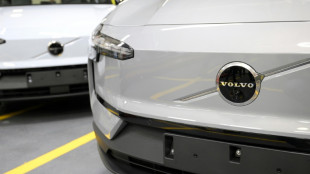 Stocks advance as investors weigh earnings, car tariff hopes
Stocks advance as investors weigh earnings, car tariff hopes
-
Canadian firm makes first bid for international seabed mining license


NASA journeys to the metal-rich asteroid Psyche
It's a world like no other: a metal-rich asteroid that could be the remnants of a small planet, or perhaps an entirely new type of celestial body unknown to science.
A NASA spacecraft blasted off from the Kennedy Space Center Friday bound for Psyche, an object 2.2 billion miles (3.6 billion kilometers) away that could offer clues about the interior of planets like Earth.
"We're going to learn all kinds of new things, how these things fly through the solar system, and they hit each other and they cause the evolution of what we have today, our solar system," NASA chief Bill Nelson said shortly before lift off at 10:19 am Eastern Time (1419 GMT) on a reusable SpaceX Falcon Heavy rocket.
"We've visited either in person or robotically worlds made of rock, worlds made of ice and worlds made of gas... but this will be our first time visiting a world that has a metal surface," lead scientist Lindy Elkins-Tanton told reporters during a briefing this week.
Trailing a blue glow from its next-generation electric propulsion system and flanked by two large solar arrays, the van-sized probe should arrive at its destination in the Asteroid Belt, between Mars and Jupiter, in July 2029.
- Studying cores of rocky planets -
Over the course of two years, it will deploy its suite of advanced instruments to probe Psyche for evidence of an ancient magnetic field and to study its chemical and mineral composition, as well as topography.
Scientists think Psyche, named after the goddess of the soul in Greek mythology, could be part of the iron-nickel core of a "planetesimal," a building block of all rocky planets, that was left exposed after an ancient collision blasted off the exterior.
It could also be something else -- a primordial solar system object that's never been documented before.
"This is our one way to see a core," said Elkins-Tanton. "We say tongue in cheek that we're going to outer space to explore inner space."
Psyche is thought to have an irregular, potato-like shape, measuring 173 miles (280 kilometers) across at its widest point -- though it's never actually been seen up close.
Until recently, scientists thought it was overwhelmingly composed of metal -- but analyses based on reflected radar and light now indicate that metal probably comprises between 30-60 percent, with the rest being rock.
- Solar electric propulsion -
The mission will include several technological innovations.
The Psyche spacecraft, named after the asteroid, will test out next generation communications based on lasers -- a step NASA compares to upgrading old telephone lines on Earth to fiber optics.
Deep Space Optical Communications, as the system is called, "was designed to demonstrate 10 to 100 times the data-return capacity of state-of-the-art radio systems used in space today," said Abi Biswas of NASA's Jet Propulsion Laboratory in a statement.
Psyche also uses a special kind of propulsion system called "Hall-effect thrusters" that harnesses the energy from solar panels to create electric and magnetic fields that, in turn, expel charged atoms of xenon gas.
The thrust it exerts is roughly equal to the weight of an AA battery in your hand. But in the void of space, the spacecraft will accelerate continuously to tens of thousands of miles per hour.
Such systems avoid the need to carry thousands of pounds of chemical fuel into space, and Psyche will be the first time they are used beyond lunar orbit.
Th.Berger--AMWN


